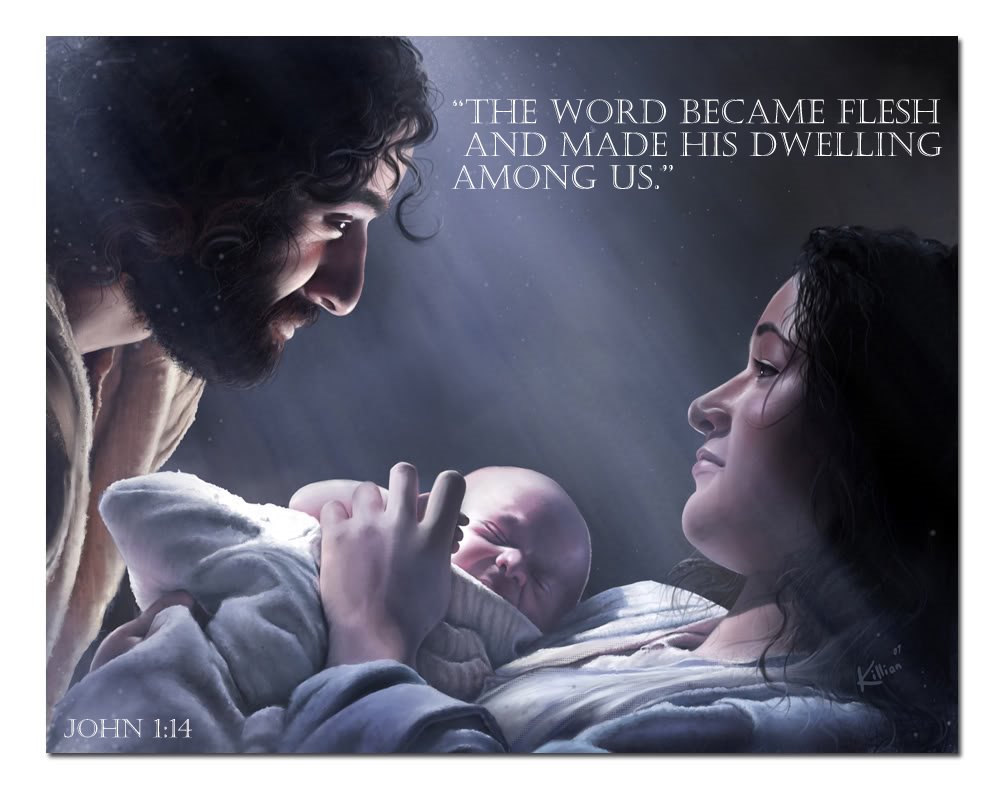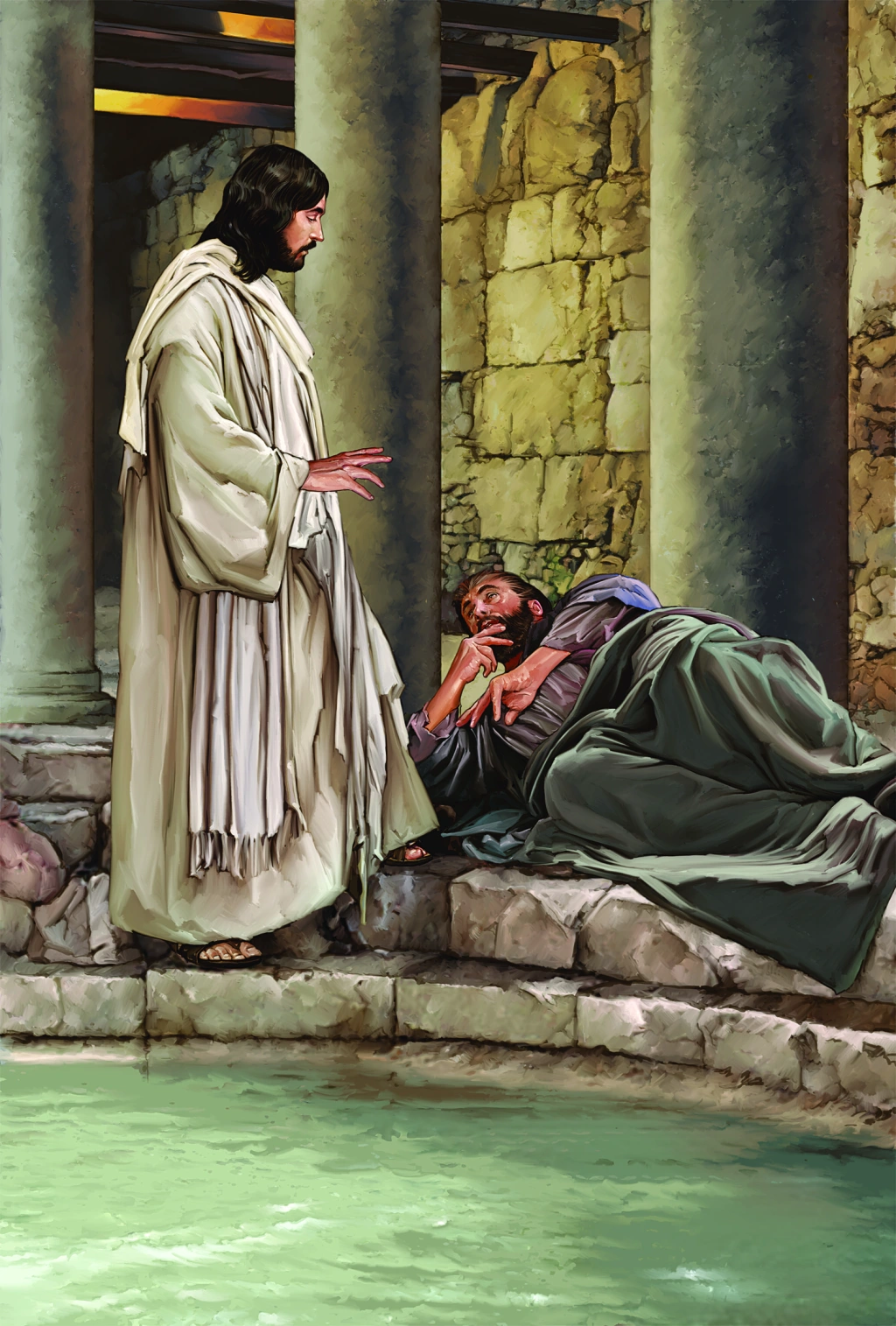 The Word Became Flesh
The Word Became Flesh
And the Word became flesh and dwelt among us, and we beheld His glory, the glory as the only begotten of the Father, full of grace and truth. 15 John bore witness of Him and cried out, saying, “This was He of whom I said, He who comes after me is preferred before me, for He was before me.” 16 and of His fullness we have all received, and grace for grace. 17 For the law was given through Moses, but grace and truth came through Jesus Christ. 18 No one has seen God at any time. The only begotten Son, who is in the bosom of the Father, He has declared Him. John 1:14-18
John having already affirmed the true deity of Christ now affirms His true humanity. This is a great mystery as to how Divinity can also assume humanity and yet remain divine. Finite understanding halts at the threshold of infinite love, wisdom, and power. Baffled and unable to go further Paul speaks of the incarnation as a great mystery (I Timothy 3:16). To stray beyond the bounds of what inspiration has made known is to delve into mysteries the human mind lacks the capacity to comprehend. What also boggles the mind is that Christ being fully human as you and I are, except that He “knew no sin” (II Corinthians 5:21). The scriptures repeatedly and emphatically proclaim this fundamental truth (see Luke 1:35; Romans 1:3; Romans 8:3; Galatians 4:4; Philippians 2:6-8; Colossians 2:9; I Timothy 3:16; Hebrews 1:2, 8; Hebrews 2:14-18; Hebrews 10:5; I John 1:2). Although Christ was originally “One as God” “in the form of God” “He did not count equality with God as things to be grasped, but emptied himself and, being born in the likeness of man” was found in human form” (Philippians 2:6-8).
From the days of eternity, the Lord Jesus Christ was one with the father, but he chose to give back the scepter into the Father’s hands, and to step down from the throne of the universe in order that He might dwell among us and make us familiar with His divine character, which after all is the character of the Father.
The two natures, the divine and human were mysteriously blended into one person. Divinity was clothed with humanity, not exchanged for it. In no sense did Christ cease to be God when he became man. The human nature was not changed into the divine nor the divine into the human.
The disciple uses the word “Glory” in describing Jesus because in essence he was describing the character of God the Father that shown out through His Son, now in human form.
John bore witness of Him and cried out, saying, “This was He of whom I said, He who comes after me is preferred before me, for He was before me.
By divine inspiration John although never having seen Jesus before knew who he was. About Christ was a difference in character from all other people. There was a pureness about Him that set Him apart from all others. Although sinless, Christ was tempted as we are yet remained without sin.
God had given the law to Moses, but John makes us aware that all grace and truth comes through Jesus Christ. For no man has seen God, yet through Christ Jesus the character of God is revealed to all mankind for the only begotten Son has been in the very bosom (or intimate presence of God) therefore Jesus and Jesus alone can truly declare the true character of God and reveal Him to all mankind through his words, actions and miracles.
Just one other note before we close. When John uses the term “The only begotten” he is using a phrase that is made up of two words, “unique” and “only”. Thus Christ is “only one of a kind”. The word used to describe this is monogenês which is also used to describe Abraham’s son Isaac who was by no means Abraham’s “only begotten,” or even his “first-born”. But he was the son of promise, and as such, the one destined to succeed His father as heir to the birthright. Similarly in respect to the five texts in John’s writings of Christ, the translation should be one of the following: “unique,” “precious,” “only,” “sole,” “the only one of his kind,” but not “only begotten.”
Properly understood Christ’s unique status as the Son of God, the word monogenês distinguishes between Him and all others who through faith in Him are given “power to become the sons and daughters of God.” (vs 12) and who are specifically declared to be “born of God” (vs 13). By virtue of this fact we “become the sons and daughters of God’ when we receive Christ and believe on his name.
Therefore, the Word became flesh that He might dwell among us. For He alone is unique above all others, by dwelling with God the Father and then with mankind He can truly reflect God’s character to us all. Therefore, he declares mankind to the Father and the Father to mankind.




7 responses to “The Word Became Flesh”
Hey. I find this very inspiring and creative. Writing is really a great outlet for expressing one’s thoughts and sharing pure emotions. You’ve done a great job in doing just that. Nice work! I hope you could also follow my blog page. Cheers! 🙂
LikeLike
Nicely penned.
LikeLike
Thank You, so happy you enjoyed.
Blessings,
Pastor Lester
LikeLike
Would you like to share your content on our open blogging social website?
LikeLike
I could be interested. What social website would you be sharing this on?
LikeLike
If you wish to, you can visit Ascerblog.xyz and sign up on the website. Post that, you can start sharing your content.
LikeLike
Sadah,
I am so glad you enjoyed it. Blessings and hope you will continue to visit my blog.
Blessings,
Pastor Lester
LikeLike